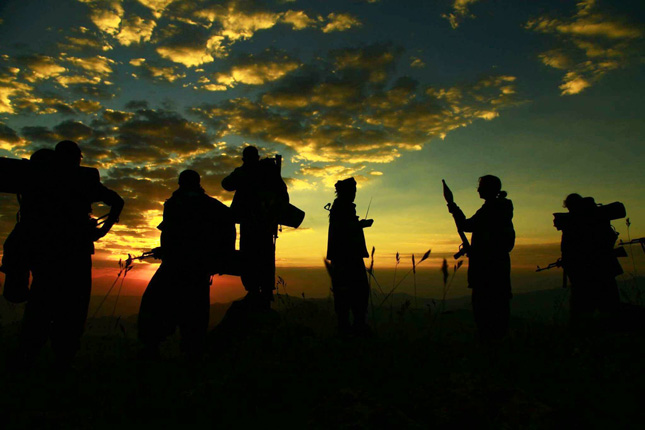-
Lukas Rüttinger, A New Climate for Peace
Insurgency, Terrorism, and Organized Crime in a Warming Climate
May 2, 2017 By Wilson Center Staff
Terrorist groups such as the Islamic State and Boko Haram have been dominating the headlines since 2013. Both groups have gained international notoriety for their ruthless brutality and their rise is posing new challenges for national, regional, and international security. Such non-state armed groups (NSAG) are not a new phenomenon. Today, however, we can observe an increasingly complex landscape of violent actors with a range of hybrid organizational structures and different agendas that set them apart from “traditional” non-state actors and result in new patterns of violence.
At the same time, there has been increasing acknowledgement within the academic literature and among the policy community of the relationship between climate change and security. However, most research on climate change and security only touches on the topic of non-state armed actors and does not specifically and comprehensively spell out the links between climate change, fragility and non-state armed groups.
The report Insurgency, Terrorism, and Organized Crime in a Warming Climate: Analyzing the Links Between Climate Change and Non-State Armed Groups tries to address this gap. Four case studies on Boko Haram in the Lake Chad region, ISIS in Syria, the Taliban in Afghanistan, and urban violence and organized crime in Guatemala span the whole spectrum of NSAGs and explore in depth the specific role NSAGs play in the complex dynamics of climate change and fragility.
These case studies show that as the climate is changing, so too are the conditions within which NSAGs operate. The complex risks arising from climate change, fragility, and conflict can contribute to the emergence and growth of non-state armed groups. This does not imply that there is a direct link between climate change and NSAG-related violence and conflict. However, large-scale environmental and climatic change contributes to creating an environment in which non-state armed groups can thrive and opens spaces that facilitate the pursuit of their strategies.
Continue reading on A New Climate for Peace.
Sources: A New Climate for Peace.
Photo Credit: Kurdish guerillas, courtesy of flickr user Kurdishstruggle.
 A Publication of the Stimson Center.
A Publication of the Stimson Center.



